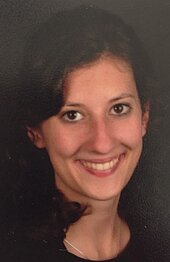Kunzmann, Ruth
Congratulations on passing the oral examination on 25 February 2025.
Dissertation topic:
"Religious leisure - analysing the functioning and goals of religious rest periods and their applicability to Sunday and the sabbatical."
Doctoral fellowship of the Cusanuswerk (1.3.2023 - 28.2.2025)
Contact address at the University of Würzburg:
Institute of Philosophy
Ehrenhof, south wing
Residenzplatz
97070 Würzburg
First supervisor: Prof. Dr Franz-Peter Burkard
Second supervisors:
Class in the Graduate School: "Philosophy, Languages, Arts"
Doctorate in the Graduate School from WS 2020/21.
Abstract:
Rule over working hours through Sunday rest and the sabbatical Inculturation of the Sabbath - What benefits can voluntary time off with no responsibility bring to society? The dissertation project deals with the extent to which working time models attempt to implement the religious rest commandment of the Jewish Sabbath and how this can be of benefit to society through personal commitment. This also raises the question of whether the implementation of a secular Sabbath idea is even wanted or needed by people today. Here,
Germany and the working time models of Sunday rest and the sabbatical or sabbatical year will be used as examples.
The state and legal regulations can only enable people to gain self-determination over their own time for a limited period of time. The state cannot fulfil the metaphysical mission as envisaged in the Jewish tradition. Under the heading "unavailability of time", we will analyse how the working time models described above can form the basis for maintaining the religiously envisaged peace and quiet. The popular buzzword "deceleration" shows the actual importance of peacefulness in the hectic modern age. Through the laws, the Israelites were obliged to rest for one day of the
week by giving their time to God. The modern secular worker must become active himself in order not to have to be active for once. The benefits that can result from this will then be analysed on the basis of research findings, but also on the basis of experiences from religious tradition.






